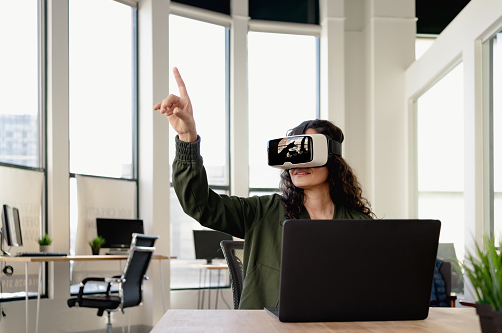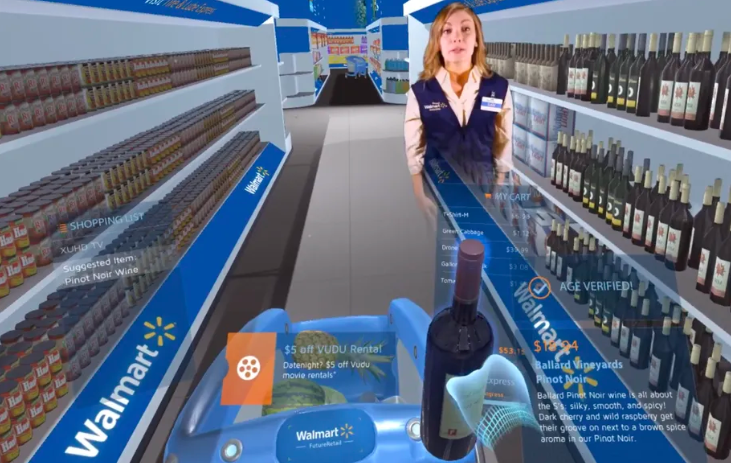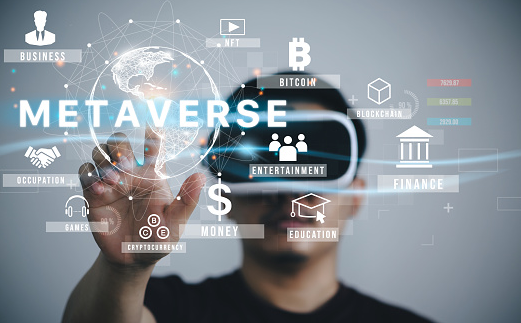The Metaverse has gained a lot of traction in the retail, grocery, and tech spaces. Almost every retail executive ponders foraying into the dreamy world of Metaverse.
It is all about merging the concept of a highly visual and interactive 3D virtual world with commerce. The Metaverse can be taken as a platform to organise virtual parties, seminars, concerts, and even create a professional office environment from the comfort of the user’s home. For instance, users looking to book a hotel suite and apartment can enter the Metaverse space to virtually experience the ambience and services of that hotel. For grocery, shoppers can don their 3D digital avatars and take a virtual tour of the retail outlet, its grocery aisles, and much more.

It is equally pertinent to the grocery executives and investors as the Metaverse is here to stay for many decades. Some of the benefits of this latest tech disruption include incredible gaming and entertainment experiences, enhanced virtual tourism, and most importantly, commerce and business trade would see a new height of growth. Let us now look at how retail and grocery giants are entering the Metaverse to attract consumers:
Alibaba
Alibaba, the famous Chinese online retailer, is in the process of entering the Metaverse. The Chinese retailer has declared its interest in launching its virtual retail outlet in the tech space and applied for various trademarks to gain an entry pass to the Metaverse.

Carrefour
Carrefour, the famous French retailer, is another retail company to enter the Metaverse. The French retailer has bought the parcel 33,147, a type of virtual plot in the Sandbox. The Sandbox is a game that allows players to obtain digital plots called LAND. Owners can create, share, and earn money from in-world assets and gaming experiences. Carrefour reported that it had acquired land equivalent to 30 supermarkets in the Metaverse. This move augments the digital transformation and innovation projects of Carrefour. The retailer held its first-ever recruitment event in the metaverse. Students from Ecole Polytechnique and Institut Mines-Telecom Business School attended and Alexandre Bompard hosted the hiring event. Fortnite and Carrefour collaborated to come up with The Healthy Map which allows each player to freely create content on their own island. Players can freely imagine their environment with their rules and are free to invite friends for a game session. Carrefour will also sell NFTBEEs, a special kind of NFTs that will be collected to save the species of bees and maintain bees pollination. The money earned will be given to a French NGO BeeFund from the Fondation de France.

Walmart
After Carrefour, Walmart is getting into the Metaverse and will accept a collection of NFTs (or non-fungible tokens) as digital money for the virtual trade. As per CNBC, Walmart is also said to be launching its own NFTs and cryptocurrency. At the beginning of 2022, Walmart applied for a new trademark with the US Patent and Trademark office. The retailer plans to offer and sell virtual electronics, home appliances, furniture, musical instruments, toys, sporting essentials, personal care products and much more. Walmart also plans to offer virtual fitness classes and health and nutrition services by pairing up with qualified health experts.

Amazon
Amazon is certainly setting the social commerce and VR integration benchmarks higher. The digital retail giant is in the middle of introducing metaverse technology to its digital and physical retail outlets. Its newest AR shopping tool, Room Decorator, allows shoppers to experience and see what furniture and other home decor items will look like in their homes through their phones. Similarly, Amazon Style concept stores will let consumers try on dresses virtually to see what flatters their body shape.

Many retailers have been buying lands and setting up their virtual outlets in the Metaverse space to innovate their business model. Consumers can visit the grocery store virtually and try numerous products before making the final purchase. The payment process would be akin to what shoppers currently experience in supermarkets, except that it is going to be entirely digital. They will then receive their orders as usual at their doorsteps. The Metaverse will offer no trade barriers and regulatory embargos to the retailers, as that is where the retail success lies.



